"If you look at our country, the rules say the average person cannot break the law. The truth is that if you are prepared to pay, you can do anything you want" (lamenting Pakistani businessman).
The sad truth about poor but potentially wonderful Pakistan, is that the country is totally dysfunctional or "up the shit" as a young Pakistani fellow was only too keen to tell us. And no wonder. An ineffectual, corrupt government, a head strong military, a shadowy and uncontrolled Inter-Service Intelligence Agency (secret police) and a broken infrastructure make for almost insurmountable problems for this unfortunate country. Superimpose this with the resurgence of the Taliban, sectarian violence between the Sunnis and Shiites, a history of discord with neighbouring countries, the external pressures of the US who are still killing local people with drones in Waziristan (under the guise of knocking off Taliban leaders) and China wanting to thrust a corridor through Pakistan to the Indian Ocean, together with shocking natural disasters of floods and earthquakes - and you can see why the average Pakistani is so pessimistic about their country.
In fact corruption is so endemic that even the ordinary citizens play part of the tragedy. For example, no-one pays the correct price for their electricity. Instead, meter readers are paid an amount to misread the power usage and so the user pays a much lower price. In fact we have even seen blatant acts of houses plugging directly into overhead power lines! As a result infrastructure is not serviced and regular power outages are a sad fact of life, causing absolute chaos for businesses, hospitals, schools, and of course impacting severely on the Pakistani community.
Whether our flight to Skardu in the north was cancelled that day due to corrupt officials re-directing the aircraft to the better paying NGO's of Afghanistan (we were told this is a regular occurrence) or in fact the weather really was poor, we will never know. In fairness we found out that airports such as Skardu do not have communications beacons for aircraft and so if the weather is poor, flights are understandably cancelled to avoid the risk flying aircraft manually means through heavy fog or snow.
The unreliable aircraft service is more than inconvenient and just adds insufferable pressure on the ever struggling Pakistan travel industry. This situation, as we understand, is made even more absurd by the fact that it would cost around $160,000 to put in communications beacons at each airport site, a relatively small amount which surely would be redeemed by regular passenger and/or tourist usage of a reliable flight service.
For us, what would have been just over an hour's flight became a 24+ hour arduous, spine jarring motor vehicle trip from Islamabad to Gilgit Baltistan. It also meant a complete change of our itinerary. We were now heading north by car direct to Naran, then travelling through the Babusar Pass via Chilas, to Rama where we would spent two nights and then onto Skardu and Shigar.
Mr Atlaf, our driver to Naran was from Peshawar. Reliable and pleasant, we were very appreciative to have a driver who was both experienced and competent. Roads in Pakistan are generally not for the faint hearted. Our little black Toyota sedan would take us as far as Naran, six hours north of Islamabad before we would have to hire a robust 4WD to take us through the rugged Babusar Pass to Chilas where we would be picked up by Khaja who is one of Ishaq Ali's main company drivers. Our guide Sadruddin would accompany us on our entire journey in Pakistan. Equipped with an outrageous sense of humour, Sadruddin as for our previous trips, was great company and a wonderful and caring guide.
It is hard to get inspired by the environs immediately out of Islamabad. Desperately dry and hot, the ramshackle housing, plastic tents and overt poverty of the inhabitants was a truly depressing sight. Ugly craters and gorges caused by severe water erosion of the landscape reflected past ruthless Monsoonal seasons.
Heading north to Abbottabad, we passed through greener rural land where small holdings were farmed for what looked to be grazing and cereal crops. We were told that area chiefs allow families to live on and farm their properties. In return, the farmers receive food but no income. Any excess food is taken by the landlords. This hopeless situation for the captive farmers means that their children cannot be educated. In fact education is actively discouraged leaving the farming families powerless and poverty stricken. Sadly, their dire situation is not far removed from early serfdom systems of the Middle Ages.
Numerous quarries, brick works and their belching black chimney stacks scarred the landscape toward Abbottabad, a city located in the Orash Valley of the Hazara region of the Khyber Pakhtunkwa Province (formerly and more easily known as the North West Frontier Province). The now infamous city is where Al Qaeda leader Osama bin Laden was assassinated by elite US forces in June 2011. Abbottabad is well known for its high level educational institutions and is Pakistan's centre for its top level army establishments. Understandably, it is a highly sensitive military zone - you don't want to take too many photos travelling through Abbottabad.... But somehow, I did.
It is easy to understand the continuing skepticism of the Pakistanis as to how Osama bin Laden could have lived so close to the numerous military establishments without local officials being bribed to ignore his presence. Conspiracy theories abound as to what actually happened to him. Some even believe that he is still alive, living under protection in the US.
Not surprisingly, the US government is intensely disliked by the average Pakistani who believes, probably quite rightly, that the US calls all the shots in Pakistan. It is also widely believed that US supplies to Afghanistan are mostly siphoned off into the hands of the Pakistani police, senior officials, the army and secret police. Furthermore, many people think that the Taliban is blamed for a lot of violence that is actually carried out by the secret police.
As they re-iterate, the Taliban comprises mostly poor uneducated tribal Pashtuns, yet their weapons are sophisticated and reportedly a lot are former US property. As it is unlikely that the group could loot such an amount of weaponry, it is widely believed they are directly sourced from the US. Who knows? But nothing would surprise us when it comes to the wielders of world power. And we tended to keep away from such conversations...
We are always impressed with Sadruddin's chosen stops for meals. Green Valley Restaurant at Mansehra was our stopping place for lunch. It was clean, the food was good and the staff very pleasant.
The rather uninspiring township of Mansehra and its surrounds were conquered by Alexander the Great in 327 BC, then ruled around 272 BC by Ashoka the Great. Today Mansehra is a transportation hub for Rawalpindi, Azad Jammu and Kashmir, the Kaghan and Swat Valleys and the Karakoram Highway. It was also to be our introduction to the Kaghan Valley where we were heading north via Balakot to Naran.
From Mansehra, we travelled east from the Karakoram Highway following the Kunhar River toward Balakot, a township that was virtually obliterated during the 2005 earthquake. Sadruddin explained that 95% of all the Balakot buildings were destroyed and many lives lost. The township has been re-built by the Pakistani Government with Saudi Arabian support. Looking back across the rapidly flowing snow fed Kunhar River, it was hard to believe that this now thriving township was once a scene of mass destruction. It was however a sobering reminder of the restless tectonic plates of northern Pakistan.
During our travels through Pakistan, we have always been amused by the Pakistanis' love of water. Wherever there is a waterfall, or a water course conveniently flowing over the main road, there are always opportunistic families bathing, people washing their cars or even entrepreneurial business people setting up small restaurants right in the middle of the streams. We stopped at a small restaurant right in - not on - the water and were astounded by its popularity. I must have been distracted by this amusing scene when a seemingly friendly elderly man approached me. The rather eccentric white bearded gentleman made for what I thought would be a great photo shot and when asked, obligingly posed for me. What I hadn't noticed was his bowl he proffered, obviously asking for money. Of course I had left my wallet in the car. Sadruddin gave me a pitying look, paid the fellow then firmly guided me away. Alan was disgusted by my naivety. Even the photo was pretty ordinary.
The road began to wind high above the Kunhar River, providing splendid views of the steep lush spruce, pine and walnut tree clad mountains. New pagoda-like houses, with gleaming metal roofs - a legacy of post earthquake re-building projects - clung impossibly to steep slopes, connected by almost vertical tracks. Frequent huge landslips, solemn reminders of the fragile nature of these lands, completely obliterated many connecting roads and walking trails. These rather flash houses apparently belong to wealthy Islamabad people who use them as holiday houses in the summer season.
We stopped at one point to take photos of the spectacular gorge which now dropped to around 300 meters below the road. A young boy was practising throwing rocks down into the gully, running at a frantic pace to a small mound where he hurtled his stony treasures. We looked on with horror as the boy slipped and almost fell to what would certainly have been his unavoidable death. Our driver thought it was hilarious. We just felt sick, realising that risk taking in Pakistan is just a way of life. No cotton wool coddling of children over here, we thought.
Hundreds of curious wooden boxes, accompanied by poor looking people in sad plastic or more substantial UNO tents (obviously re-used from previous disasters) now lined the road. The bee hives became a familiar site all through the lower Kaghan Valley where they and the apiarists stay for the summer season.
As the road rose higher into the mountainous country, our pleasant journey came to an abrupt halt at a major traffic jam. The road became an unsealed narrow slush trail fed by surrounding melting glaciers and below was a mind boggling and unimpeded drop to the river. At one stage Alan and Sadruddin had to walk through a water course to save the car from most probably bogging, like a lot of the other sedan cars. Further on the melting glaciers formed a fast flowing stream across our muddy track of a road and down hundreds of meters to the Kunhar River. I couldn't bear to look out as our little Toyota sedan bravely crossed the flowing water course. I rather envied Alan and Sadruddin for walking rather than being driven. How some of the mini buses that were laden with passengers and more people sitting on the roofs managed to cross was beyond me.
Apparently the road had been open for the summer season for only two weeks. Road workers with their ancient noisily cranking gear, precariously perched on the very edge of the often still frozen road, looked exhausted as they worked pitifully using the most primitive tools and wearing filthy shalwar kameez. Some looked to be just young boys. Road work must be some of the most dangerous and onerous jobs in Pakistan. Workers camping in the most basic tent accommodation must not only endure the hard physical labour but also live in dirty, unsanitised and freezing conditions. There is always work available however, in the never ending repair of roads in these mountainous, landslip and glacier prone areas.
The rough road wound high and villages such as Paras, Khanlan and Kaghan became a blur. In the long shadows of the afternoon we came across a huge refugee camp, with tents spread as far as we could see. No, it was not a refugee camp - we had arrived at Naran nestled in the beautiful Kaghan Valley, our base for the night.
Situated at an altitude of 2,500 m and surrounded by glorious mountains, Naran was a mind boggling mix of tents, shabby hotels and chalets, endless stall holders and even Ferris wheels. Huge traffic queues of mini buses, jeeps and cars choked the long narrow main street and hundreds of people, looking surprisingly happy, wandered amongst ubiquitous food stalls, restaurants, tourist shops and mountains of rubbish.
Apparently Naran is a top holiday spot for city people of the south with thousands flocking to the cooler higher grounds in summer to escape the relentless blazing heat of Islamabad and Rawalpindi. It was indeed party time in Naran as we walked early in the evening through the frenetic township. In fact it was almost a mardi gras type feeling with friendly young people and families stopping to chat with us and always asking where we were from. The atmosphere was infectious and we thoroughly enjoyed what ended up being a lovely walk and a surprisingly fascinating experience.
Accommodation in Naran is almost impossible to find in peak season. Furthermore, prices sky rocket to around four times the normal tariff rate. Fortunately for us, our Naran Hotel Mountain Shela had just one room available but poor Sadruddin had to camp nearby. He bravely told us that he enjoyed camping but was horrified by the price for his basic one person tent with no facilities and no electricity.
Our hotel was basic but clean, and the hotel staff was very obliging. Our hot water was provided by wood fire and we had to negotiate with the owner for water and electricity for our early morning start the next day. That evening we enjoyed a lovely meal on our hotel verandah with our long suffering friend Sadruddin. We must admit that we felt rather guilty as we watched him stumble torch in hand across the wetlands and water channels in total darkness to reach his tent. But not that guilty - we both hate camping and later in our travels to Sarchu, northern India, we were to find out just how much we really hate it...
Flight Cancelled - Corruption or Just Bad Weather?
Saturday, June 23, 2012
 Naran, North West Frontier Province, Pakistan
Naran, North West Frontier Province, Pakistan
Other Entries
-
1Maps of Our Travels
Jun 176 days prior Crowdy Head, Australiaphoto_camera3videocam 0comment 0
Crowdy Head, Australiaphoto_camera3videocam 0comment 0 -
2Aboard the Grafton Express for Sydney
Jun 185 days prior Crowdy Head, Australiaphoto_camera7videocam 0comment 0
Crowdy Head, Australiaphoto_camera7videocam 0comment 0 -
3A Very Well Kept Secret.....
Jun 194 days prior Shanghai, Chinaphoto_camera9videocam 0comment 0
Shanghai, Chinaphoto_camera9videocam 0comment 0 -
4City Furthest from a Coastline in the World
Jun 203 days prior Urumqi City, Chinaphoto_camera15videocam 0comment 0
Urumqi City, Chinaphoto_camera15videocam 0comment 0 -
5From Urumqi: A Blistering Hot Welcome to Pakistan!
Jun 221 day prior Islamabad, Pakistanphoto_camera12videocam 0comment 1
Islamabad, Pakistanphoto_camera12videocam 0comment 1 -
6Flight Cancelled - Corruption or Just Bad Weather?
Jun 23 Naran, Pakistanphoto_camera19videocam 0comment 0
Naran, Pakistanphoto_camera19videocam 0comment 0 -
7Blown Away by Babusar
Jun 241 day later Babusar Pass, Pakistanphoto_camera31videocam 0comment 0
Babusar Pass, Pakistanphoto_camera31videocam 0comment 0 -
8Picturesque Rama - But a Stay That Felt Forever
Jun 241 day later Rama Gilgit-Baltistan, Pakistanphoto_camera10videocam 0comment 1
Rama Gilgit-Baltistan, Pakistanphoto_camera10videocam 0comment 1 -
9A Spiritual Experience & Shoot Only with a Camera!
Jun 263 days later Shigar, Pakistanphoto_camera17videocam 0comment 0
Shigar, Pakistanphoto_camera17videocam 0comment 0 -
10Stunning Shigar and the King's Bedroom
Jun 263 days later Shigar , Pakistanphoto_camera14videocam 0comment 0
Shigar , Pakistanphoto_camera14videocam 0comment 0 -
11NEVER, EVER Get Involved in a Political Rally.....
Jun 274 days later Khaplu, Pakistanphoto_camera11videocam 0comment 0
Khaplu, Pakistanphoto_camera11videocam 0comment 0 -
12More Photos of Khaplu
Jun 274 days later Khaplu, Pakistanphoto_camera13videocam 0comment 0
Khaplu, Pakistanphoto_camera13videocam 0comment 0 -
13Another Flight Cancelled - or Chilling at Chilas
Jun 285 days later Chilas, Pakistanphoto_camera15videocam 0comment 0
Chilas, Pakistanphoto_camera15videocam 0comment 0 -
14Lone Man with a Rifle: Chilas to Islamabad
Jun 296 days later Islamabad, Pakistanphoto_camera22videocam 0comment 0
Islamabad, Pakistanphoto_camera22videocam 0comment 0 -
15Vibrant Exotic Lahore
Jun 307 days later Lahore, Pakistanphoto_camera19videocam 0comment 0
Lahore, Pakistanphoto_camera19videocam 0comment 0 -
16"A Love Marriage Sir.....?"
Jul 029 days later Amritsar, Indiaphoto_camera14videocam 0comment 0
Amritsar, Indiaphoto_camera14videocam 0comment 0 -
17Kashmir: Tranquility and Terror
Jul 0310 days later Srinagar, Indiaphoto_camera11videocam 0comment 0
Srinagar, Indiaphoto_camera11videocam 0comment 0 -
18Photo Gallery of Srinagar
Jul 0310 days later Srinagar, Indiaphoto_camera30videocam 0comment 0
Srinagar, Indiaphoto_camera30videocam 0comment 0 -
19A Police Assault, a Yatra & Zozilla Pass
Jul 0512 days later Kargil, Indiaphoto_camera22videocam 0comment 0
Kargil, Indiaphoto_camera22videocam 0comment 0 -
20Into Ladakh: "Take Care, Life Has No Spare"
Jul 0613 days later Alchi, Indiaphoto_camera24videocam 0comment 0
Alchi, Indiaphoto_camera24videocam 0comment 0 -
21Jule (joo-lay) from Ley!
Jul 0714 days later Leh, Indiaphoto_camera13videocam 0comment 0
Leh, Indiaphoto_camera13videocam 0comment 0 -
22Photo Gallery of Leh
Jul 0714 days later Leh, Indiaphoto_camera26videocam 0comment 0
Leh, Indiaphoto_camera26videocam 0comment 0 -
23"Luxury Camping" Or a Rough Night in Sarchu
Jul 1017 days later Sarchu Heights, Indiaphoto_camera32videocam 0comment 0
Sarchu Heights, Indiaphoto_camera32videocam 0comment 0 -
24To Manali: "But Sir, We Have a Flight to Catch..."
Jul 1118 days later Manali, Indiaphoto_camera18videocam 0comment 0
Manali, Indiaphoto_camera18videocam 0comment 0

 Naran, North West Frontier Province, Pakistan
Naran, North West Frontier Province, Pakistan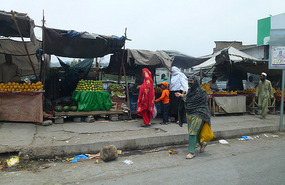
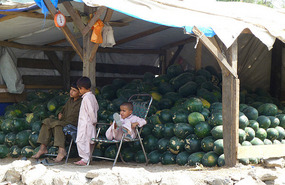
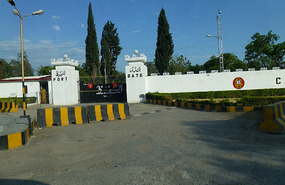
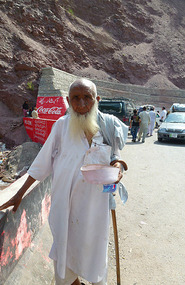
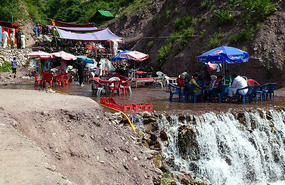
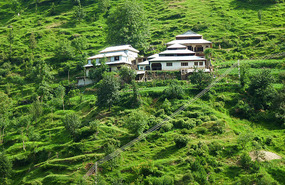
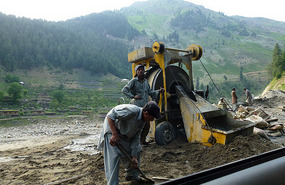
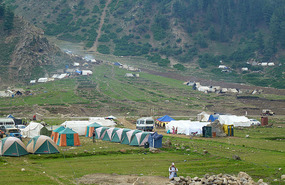
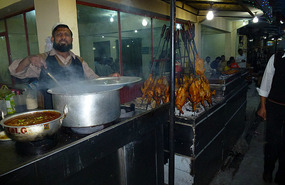
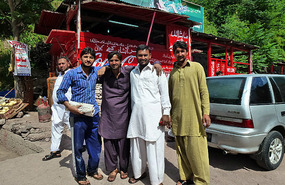
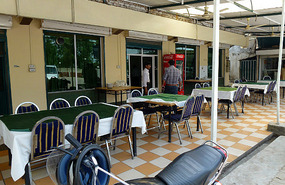
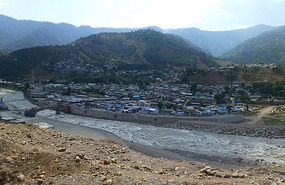
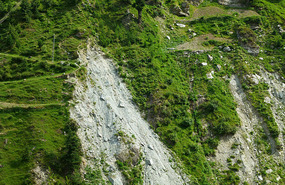
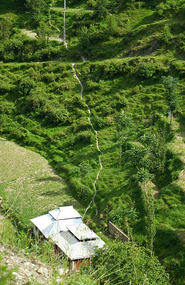
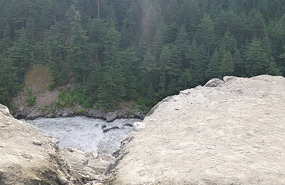
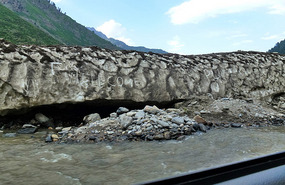
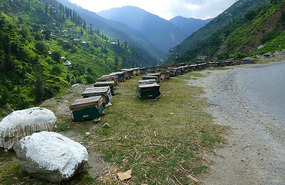
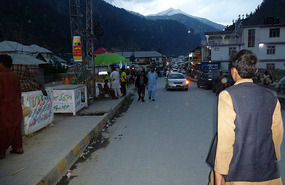
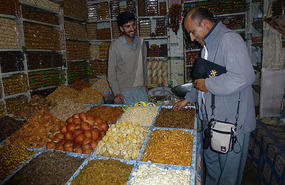




2025-05-22